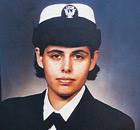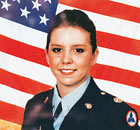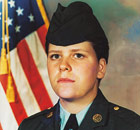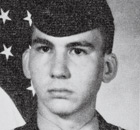The Prosecution of Bush, Obama,
and the Neoconservatives
for Murder, Torture, and Sodomy
…by Jonas E. Alexis
Let us say that Mr. Obama’s precious children were having some barbecue on their backyard and then an explosive went off (God forbid), which eventually caused severe damages to those precious children.
How would the president and our beloved first lady react? How would America in general feel? Would not the country go into universal mourning? Would not the president pursue further investigation? Would he not do everything in his power to go after the culprits?
We all know what he would do. Right after the Sandy Hook Elementary School shooting, Obama delivered a message saying,
“These tragedies must end and to end them we must change. The majority of those who died today were children—beautiful little kids between the ages of 5 and 10 years old. They had their entire lives ahead of them—birthdays, graduations, weddings, kids of their own. Among the fallen were also teachers — men and women who devoted their lives to helping our children fulfill their dreams.
.
READ MORE HERE
http://www.veteranstoday.com/2013/12/31/the-prosecution-of-bush-obama-and-the-neoconservatives-for-murder-torture-and-sodomy/

A female soldier in Iraq is more likely
to be attacked by a fellow soldier
than killed by enemy fire
"It was eight years before I was able to say the word that describes what happened to me," says Maricella Guzman. "I hadn't even been in the Navy a month. I was so young. I tried to report it. But instead of being taken seriously, I was forced to do push-ups."
"I can't sleep without drugs," says Kate Weber. "But even then, I often wake up in the middle of the night, crying, my mind racing. And I lie there awake in the dark, reliving the rape, looking for a second chance for it to end with a different outcome, but he always wins."
Rape within the US military has become so widespread that it is estimated that a female soldier in Iraq is more likely to be attacked by a fellow soldier than killed by enemy fire. So great is the issue that a group of veterans are suing the Pentagon to force reform. The lawsuit, which includes three men and 25 women (the suit initially involved 17 plaintiffs but grew to 28) who claim to have been subjected to sexual assaults while serving in the armed forces, blames former defence secretaries Donald Rumsfeld and Robert Gates for a culture of punishment against the women and men who report sex crimes and a failure to prosecute the offenders.
Since the lawsuit became public in February, 400 more have come forward, contacting attorney Susan Burke who is leading the case. These are likely to be future lawsuits. Right now they are anxiously awaiting a court ruling to find out if the lawsuit will go to trial. The defence team for the department of defence has filed a motion to dismiss the case, citing a court ruling, dating back to 1950, which states that the government is not liable for injury sustained by active duty personnel. To date, military personnel have been unable to sue their employer.
Whether or not the case goes to trial, it is still set to blow the lid on what has come to be regarded as the American military's dirty little secret. Last year 3,158 sexual crimes were reported within the US military. Of those cases, only 529 reached a court room, and only 104 convictions were made, according to a 2010 report from SAPRO (sexual assault prevention and response office, a division of the department of defence). But these figures are only a fraction of the reality. Sexual assaults are notoriously under-reported. The same report estimated that there were a further 19,000 unreported cases of sexual assault last year. The department of veterans affairs, meanwhile, released an independent study estimating that one in three women had experience of military sexual trauma while on active service. That is double the rate for civilians, which is one in six, according to the US department of justice.
"For years, I thought I was the only person this had happened to, but it's an epidemic," says Weber, 36, who recounts being raped 16 years ago in Germany, and describes herself as a "high-functioning" sufferer of post-traumatic stress disorder (PTSD) as a result.
She is now married and lives in San Francisco with her four children, but even after years of therapy, still cannot sleep at night. "Rape is so widespread in the American military, it's sick."
Worse still, the victim is likely to be blackballed by her own unit, and sometimes even demoted, according to Weber. "I first tried reporting the rape to my staff sergeant, he told me to be quiet and not tell anyone. So then I tried to tell a woman sergeant, who was beneath him, because I thought she'd be more sympathetic. She just cursed me for jumping the chain of command and not coming to her first. I went to the doctor, who did at least make a record of it, but he did nothing. I also told my 'battle buddy', a fellow female soldier. She said, 'I know that guy. He's married and he would never do such a thing. You're a liar and a slut.' Before long, I was being called a whore and a bitch by everyone. The guys were warning each other: 'This one will accuse you of rape, so stay away from her.' I was 18 years old, it was the first time I had ever been away from home. I had no idea what to do."
Stories such as Weber's are commonplace. On mydutytospeak.com, where victims of military rape can share their experiences, there are breathtaking tales of brutality and mistreatment. Only 21 years old, and weeks into her military training, Maricella Guzman says she ran to tell her supervisor in the hours after her rape at a military boot camp in Great Lakes, Illinois. "I burst into his office and said, 'I need to speak to you,' " explains Guzman, now 34, and a student at a college in Los Angeles studying psychology, who talks about many lost years when she couldn't function as a result. "One of the procedures if you want to speak to someone in the navy is you have to knock three times on the door and request permission to speak. But I didn't do that. I was too upset. So my supervisor said 'Drop', which means push-ups. So I did the push-ups. But I was still in tears. I said, 'I need to talk to you.' He said 'Drop' again. Every time I tried to say anything, he made me do push-ups. By the time I was composed in the way he wanted me to be, I couldn't say anything any more. I just couldn't." After that, Guzman didn't try to tell anyone for another eight years.
After her attacker threatened to accuse her of being gay, Michelle Jones says she did not want to report her rape for fear of losing her job Link to video: Rape in the US military: 'He said if you tell anyone, I'll tell everyone you're a dyke'
It is so well known that sex offenders go unpunished and victims penalised for reporting incidents, that most say nothing. Michelle Jones describes how she was still lying on the floor of her room in the barracks, her ripped shorts by her ankles, when her rapist stood over her and said, "I'll tell
everyone you're a dyke and you'll get booted out if you report this."
She was two-thirds of her way through her service. "I didn't want to lose my job," says Jones, 39, who is now an IT consultant living in San Jose, California, and gay. Under the (now-repealed) US Don't Ask, Don't Tell policy, openly gay people were barred from the military. Jones wasn't even sure she was gay at the time. But it wasn't worth the risk of reporting. "If I had spoken out, I would have been the one investigated," she says. "And it wouldn't have done any good anyway. I could tell you about 15 other women I know who had tried to report a rape and got nowhere."
Rape in any circumstance is brutal, but in the military the worst effects are compounded. Victims are ignored, their wounds left untended, and the psychological damage festers silently, poisoning lives. Survivors are expected to carry on, facing their attacker on a daily basis. "Unlike in the civilian world, a military rape survivor cannot quit his or her job and move on," explains Anu Bhagwati, executive director of the Service Women's Action Network, an organisation spearheading a campaign to reform this aspect of military life. "It's like rape in the family. Many victims often receive additional threats from their attackers."
Bhagwati refers to the case of 24-year-old lance corporal Maria Lauterbach, a marine preparing to testify that she was raped by fellow marine, Cesar Laurean, when she went missing in 2007. Although it was never proved that Laurean raped her, he was later convicted of her murder. Weber found her attacker hiding in her room three times in the months that followed the rape. "He'd lie in wait just to scare me," she says.
Rape by a fellow serviceman also represents the most unfathomable betrayal to a soldier, according to Bhagwati. "You have to understand that from day one when you sign up, you are told that the people you work with are your family, that you will risk your life to save theirs. You live that uniform. It's who you are. And then, to be raped by one of your fellow servicemen? It's institutional misogyny."
There are too many stories of military rape for the Pentagon to ignore. "This is now a command priority," says a spokesman for the department of defence. "We clearly still have more work to do." But the sheer statistics beg the question: why is rape in the American military so common in the first place? "We looked at the systems for reporting rape within the military of Israel, Australia, Britain and some Scandinavian countries, and found that, unlike the US, other countries take a rape investigation outside the purview of the military," explains Greg Jacob, policy director at the Service Women's Action Network. "In Britain, for example, the investigation is handed over to the civilian police.
"Rape is a universal problem – it happens everywhere. But in other military systems it is regarded as a criminal offence, while in the US military, in many cases, it's considered simply a breach of good conduct. Regularly, a sex offender in the US system goes unpunished, so it proliferates. In the US, the whole reporting procedure is handled – from the investigation to the trial, to the incarceration – in-house. That means the command has an overwhelming influence over what happens. If a commander decides a rape will not get prosecuted, it will not be. And in many respects, reporting a rape is to the commander's disadvantage, because any prosecution will result in extra administration and him losing a serviceman from his unit."
With men and women cooped up in barracks away from home, living in an atmosphere where domination through strength is part of daily training, opportunity is another undeniable factor. Most rape survivors blank out the awful details of their attack, but all describe the ease with which it was engineered. Guzman had been on night watch training. "It was the middle of the night and someone grabbed me from behind. He pulled me into this dark space, a room of some kind. The door shut. He grabbed my throat and I remember being thrown to the wall."
Weber says she was lured outside a dance by an officer, who told her he wanted to discuss military business. "He led me up the fire escape of this building, and began to kiss me," she explains. "I resisted, but then he turned me around so my rear was at his front. He kicked my legs apart, and tore off the back of my skirt and underwear and raped me."
Jones says her attacker refused to leave her room in the barracks after a group of fellow soldiers had been partying together there. "Everyone had left except for him. I opened the door for him to leave, but he grabbed my neck from behind, and forced himself on me."
But military rape is not only a women's issue. According to the Veterans Affairs Office, 37% of the sexual trauma cases reported last year were men. "Men are even more isolated than women following rape," Bhagwati says. "Because it has an even bigger social stigma."
Rick Tringale says he was gang raped in his dormitory during the first few weeks of training Link to video: Rape in the US military: 'I just screamed for them to stop'
BEHIND CLOSED DOORS
ABUSERS BECOME PARASITES
Rick Tringale is one of few men to speak about what happened to him. He was 18 years old and in his first few weeks of training, he says, when he woke up in his bunk in the middle of the night thinking that it was raining. Someone was urinating on him.
"As I came to consciousness, I realised that I was being held down with a blanket and then I was beaten." Tringale, 43, says his life changed for ever following a brutal gang rape, that led to him going AWOL from the army, and subsequently becoming homeless.
"Next thing I remember is being dragged down the hallway. There was a lot of blood, a lot of pain, I was crying and I remember trying to run away, but I was dragged to the latrine, and hit a whole lot more. I remember the white tiles splattered with blood and seeing familiar faces and they were all hitting me. More guys were crowding into the bathroom too, and they're yelling, 'Kill him, kill him, kill him.' "
Tringale believes he was either knocked unconscious or what happened next was too horrible for his memory to recall. All he remembers is waking up in his bunk the next day, with his platoon dormitory empty. He says his face was a mess, his nose broken, his whole body beaten and he had been raped. He made it to the emergency department, but in the middle of the examination by the doctor, who was initially sympathetic, the phone rang. "The doctor was talking to someone, and looking at me. Then, when he came off the phone, he said: 'You're a phoney, your company says you shouldn't be here, and you're fine.' He sent me away. I became a different person after that. Everybody in the squad platoon knew what had happened – there was no way anyone could have missed it."
Tringale completed his training, but he became known as the "crazy guy" because any part of his training that was dangerous, he would push himself to the limit, like holding on to hand grenades so long they were seconds from exploding in his hand. He tried killing himself three times. It was after the third attempt while stationed in Germany, after being talked down off the roof of a building, that he was sent to a civilian psychiatrist, whom he told about his experience. She diagnosed PTSD and recommended Tringale be sent home. But he was also seen by a military doctor, who told him, "If there's something wrong with your mind, you'll have to stay here in this locked ward."
"I looked around at this locked ward," says Tringale. "That was when I decided I had to get out. I went AWOL." For the past 25 years, Tringale has lived with the nightmares and trauma. Because he was not honourably discharged, he lost his paycheck, his pension, and he has not had the regular support of the programmes set up by the veterans affairs department for those suffering from PTSD. For a while he held a job on a paramedic ambulance, but like many veterans who suffer from PTSD, he was also homeless for many years. He neither drinks, nor takes drugs. Two years ago he married, and became a stepfather to three children. He has never shared his story with his wife. "Our society treats men differently when they have been raped," he says. "In society's eyes I am somehow less of a man because I have been raped, or I must be a latent homosexual. Rape is a very emasculating thing."
Like the others in this article, Tringale wants to share his story in order to help those who might have experienced the same. "Eighteen veterans kill themselves every day," he says. "That's the statistic. We don't know what percentage of them are victims of rape, but if I can share my story and make someone else feel that they are not alone and there is hope, then I have done my duty."
Suicide and homelessness are common outcomes for sufferers of MST (military sexual trauma). Forty per cent of homeless women veterans have reported experiences of sexual assault in the military, according to the Service Women's Action Network. "Other common effects of MST are feelings of isolation, sleeping problems, hyper-vigilance, depression, and substance abuse," explains Dr Amy Street, a clinical psychologist at the VA Hospital in Boston who works with victims (VA hospitals are run by the veterans affairs department). "Victims talk about feeling numb, being cut off from emotions, unable to function. The best treatments are therapies, which require sufferers to talk about their attacks. This is very uncomfortable for them, but they are effective."
But because most victims do not report their attacks, it is usually many years, if at all, before they find their way to such therapy groups. Guzman began talking about what happened to her only because she met a therapist who was working at a VA hospital who recognised some of her symptoms. Guzman was depressed, couldn't keep up friendships, unable to function. She, too, had tried to kill herself. "I was an empty shell of a person," she explains. "I'd heard of PTSD before, but I'd associated it with people who had seen combat. Not me. When I was diagnosed, everything started to click in. I wasn't crazy. All the things I'd suffered started to make sense. Bear in mind, the rape had been my first sexual experience. I grew up in a very strict Catholic culture and rape is such a big taboo in my community. It wasn't something I could talk about. I felt very ashamed."
But talking has helped her. "I have no shame talking about it any more," she explains. "My family and friends all know now, and that's been an important part of my recovery. On a daily basis, I am still sleep deprived, and I have a lot of nightmares. I still find relationships with men very difficult, and I don't think I'm ever going to get married and have children. It's one of the costs of this trauma. But this year at school, I've had A grades back to back, which has been amazing. That's simply because of the support I've been getting."
Weber also speaks highly of the VA hospital where she received therapy three times a week. "I used to live in my robe. Wouldn't go out. Stay awake all night. I developed a substance abuse problem, because numbing yourself is all you want to do. I went through two marriages, and lost my bearings in life completely. But I'm doing better now than I've ever done before. In therapy you learn that not everyone is out to get you, that you're not about die. They teach you how to live life without so much fear.
"I've been clean and sober for two years. But I don't blame the other survivors I know that still want to stay loaded or die, for this type of pain I feel is indescribable. But I'm grateful that I've survived. What's important now is to get the word out and make the case for change."
Soldier-on-soldier sex assault was not recognised as an offence by the Department of Defense until 1992 - and to begin with, only female victims were acknowledged.







No comments:
Post a Comment